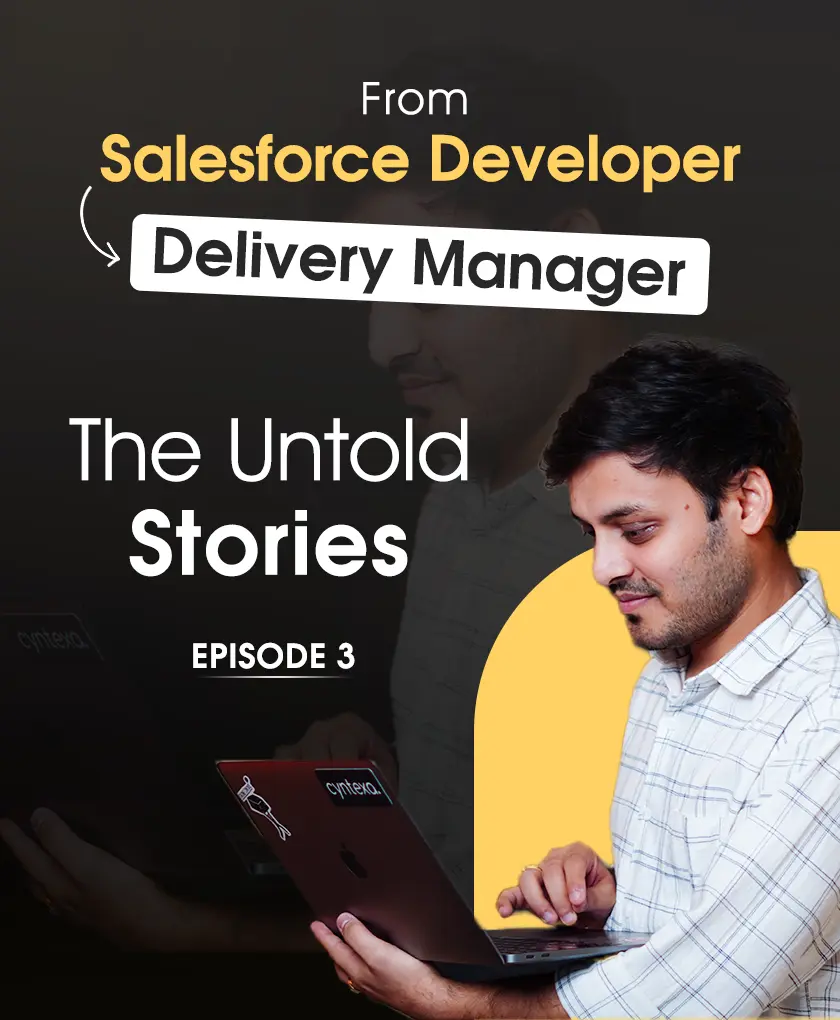Salesforce Marketing Cloud Editions Features, Suitability, Pricing
Table of Contents
Salesforce Marketing Cloud helps marketers manage the customers’ journey from Marketing to Sales, Sales to Service and much more. The platform helps save more time with excellent features to design email marketing campaigns, curate content for marketing and build lasting customer relationships.
With the Email Studio available for the Basic Edition, you can upgrade to other editions to add Mobile Studio, Social Studio, Advertisement Studio, and Web Studio, based on the growth of your business.
Types of Salesforce Marketing Cloud Editions
Let us have a closer look at the types of Editions accessible in the Salesforce Marketing Cloud.
Basic Edition
The Edition focuses on Email Marketing with the features to design personalized email content for Email Campaigns, Newsletters, and Promotional Emails.
Professional Edition
Built on Basic Edition, Pro Edition offers Data Segmentation, Automation, Predictive Intelligence, and Journey Builder along with building dynamic Email Marketing Campaigns.
Corporate Edition
Corporate Edition provides features like Cross Channel Journey building through Mobile, Email, and Web along with Einstein capabilities for personalized communication in addition to the features of Professional Edition.
Enterprise Edition
This edition has expanded features for the multi-level organization with Business Units to promote multiple brands. This Edition also comes with the features of Corporate Edition in addition to leveraging customer journeys across cross channels.
Comparing the features of all Salesforce Marketing Cloud Editions
For your convenience, we have tabled the comparison of Key features available in each Edition.
*Cost might vary with additional features. Reach out to us to know which edition can serve your business better.
Understanding Enterprise 2.0
Any multi-level organization with multiple brands and a diverse user base can avail the features of Enterprise 2.0 Salesforce Marketing Cloud Edition. In Enterprise 2.0, the organizational Nodes are called the Business Units. In a multi-level organization, the Top-Level unit is the controller of the personalized content for marketing campaigns. These personalized content can then be shared globally with the following Business units to customize as per their local market.
Key Features of Enterprise 2.0
Let us discuss some of the key features of Enterprise 2.0
- Business Units are the nodes of the hierarchical structure of an organization that controls the access of sending, sharing and deleting information. Depending on the needs of a business, these Business Units are created, deleted and updated.
- Users are created under the Business Units and the Controller can add or remove users from the Business Units.
- With the help of the Page Actions, you can create toolbar buttons in the Email Studio. These Page Actions help you capture data to be moved to the target pages.
- The parent account stores the Subscribers list, which is then filtered according to the business needs.
- Subscribers are filtered and saved under specific Business Units to make sure to target the right audience with the Email Campaigns. Subscribers can be filtered under multiple criteria to save them under different business units.
- Unsubscribes in Enterprise 2.0 comes with two options as to remove from the specific business unit or from all the Business Units, again depending on the business needs.
- Mass Administration feature helps us import bulk data of Users and Business Units to save time.
- Email Studio Web Collect is the feature with which the subscribers can subscribe themselves to the list, update their information and unsubscribe from the list if required. This feature helps you track the activities of your subscribers with ease.
- Top-level Business Units can create multiple Profile and Preference attributes to be shared with the child business units.
- With the Enterprise 2.0, you can set different IP ranges for each Business Unit with the help of Whitelist IP ranges.
- The Customized Local Content helps you view the Business Units who can share the Top-Level content as the local content, add other Business Units to share the content, remove Business Units from sharing the list, make changes to the local content, schedule then local content.
Differences between Enterprise & Enterprise 2.0
| Enterprise | Enterprise 2.0 |
| The lock and Publish allows limited email content access to the members allow limited Email Content access to the members listed under this feature. Once published to the members, you can lock down some or all of the content depending on business needs. | The Top-level Business Unit will curate a personalized content which can then be shared with other Business Units to share as local content. Thus Enterprise 2.0 supports multiple Business units categorized across the globe. |
| The lock and publish members can only decide upon the time to send the emails but the content remains unaltered. | The Child Business Units can customize the content to share the same as the local content. |
| Email Content is published to the channel member for promotion and campaigns. | The Content is shared globally throughout the Enterprise. |
| Use of Global Folder for sharing content | Shared Folders are used to move content to other business units. |
| Personalization Strings are used to insert the display name and email Id of the sender. Parent Account like the lead account or the owner account can be personalized. | Every business unit gets its own Sender Profile based on the filters by which the business units are classified. |
Understanding the need for Enterprise 2.0 for the business
The following are the key findings from a recent survey conducted by Salesforce Marketing Cloud to understand the audience’s needs for platforms like Enterprise 2.0
- When it comes to customer relationship management, 80% of the customers say the experience with a company is as important as the product they sell, with 95% stressing their loyalty for the companies that provide better customer experience.
- In the case of customer engagement, 66% of the customers’ demands immediate engagement as and when needed while 84% believe that personal engagement is essential for winning in the market.
- 59% of the customers believe in Tailored Engagement depending on the purchase history that gives them a better feel about the company.
- When 70% of the customers seek service post-sales, it is evident that 4.5 times expect real-time messages.
- Now comes the most exciting part, the potential buyers using digital markets to buy their favorite. As always, the mobile apps top the list with 90% of the young customers wanting to buy through their mobiles on the go.
- 88% opting web portals and 86% buy from social media.
- 59% of customers welcome companies that use AI to improve their experiences.
- 56% of the customers love AI-driven personalized recommendations.
- Across the customer journey with the company, 80% expect consistent interaction through cross channels.
- When 80% of the customers expect personalized shopping experience, 85% of the customers require proactive customer service.
Source Credits: State of the Connected Customer, 2nd Edition, by Salesforce Research Team from March – April 2018.
Leveraging Enterprise 2.0 in Business
Now that we have understood the need of Enterprise 2.0 for marketing, let us see the best we can make out of the features in Enterprise 2.0
- Web Analytics can be used to track the activities of a lead from the website. This report can be analyzed to find exactly what the customer was looking for and the following activities to determine if he found what he wanted. Based on this report, the sales team can come up with a list of recommendations for the Customer.
- Customer Engagement is the main component to be considered during the journey and make sure to provide consistent customer service on demand. It is also important that the service support should be aware of the customer journey with the company.
- Customer Engagement also includes sending Promotional Emails with personalized offers on a regular basis and keep the customers updated with the latest products.
- Creating and Tracking the activities of like-minded customers help to generate new leads. Customer Satisfaction can contribute to the conversion of leads.
- Exchanging information between various levels helps to understand the products better and this, in turn, helps with the best customer support.
Which edition is best to go with?
- Basic Edition is for companies making baby steps into marketing and requires a simple customer management solution that includes creating and sending a personalized email for Email Marketing campaigns.
- Pro Edition is applicable for the companies that require building a 1:1 relationship with the customers through Journey Builders.
- Corporate Edition provides excellent features like cross channel customer journey with predictive intelligence and Einstein Capabilities and these features can be availed by mid-size to a growing company.
- Enterprise Edition is best for multi-level organizations with multiple brands to provide cross channel customer journeys across the geography.

You can always start with the Basic Edition and upgrade to other Edition as the business grows and Cyntexa helps you to choose the right Edition for your Business keeping in mind the utmost needs for the growth of your business.

Conclusion
Big or Small, Business to Business or Business to Customers, any organization that can understand the importance of Customer Journey will require Salesforce Marketing Cloud Implementation. Depending on the needs of your business, you can choose between Basic Edition of marketing with the help of Email Campaigns, Pro Edition providing one to one Customer journeys, Corporate Edition providing cross channel Customer journey with predictive intelligence and Enterprise Edition providing cross channel Customer Journey across the globe. Enterprise Edition has extensive features in Mobile, Web and Social Studio providing opportunities and greater ROI.
Don’t Worry, We Got You Covered!
Get The Expert curated eGuide straight to your inbox and get going with the Salesforce Excellence.
Frequently Asked Questions
Salesforce Marketing Cloud enables marketers to keep track of endless customer activity. The platform saves time and comes with unique features like building long-lasting relationships with clients, attractive email marketing campaigns and delivering the best content. Salesforce Marketing Cloud has different editions having additional features in each of them.
The different types of Editions available in the Salesforce Marketing Cloud are:
- Basic Edition: Specializes in email marketing and has tools for creating customized email campaigns, newsletters, and promotional emails.
- Professional Edition: Along with the features of Basic Edition, this Pro version proposes dynamic email marketing campaigns, data segmentation, automation, predictive intelligence, etc.
- Corporate Edition: In addition to the features of the Professional Edition, it offers Cross Channel Journey creation via mobile, email, and the web, as well as Einstein abilities for personalized service.
- Enterprise Edition: In addition to utilizing client journeys across channels, this edition also includes the capabilities of the Corporate Edition.
The key features of Salesforce Marketing Cloud includes:
- Personalized Content Builder
- Marketing Automation
- Web & Mobile optimized Templates
- Triggered Communication
- Access to Sales Cloud & Service Cloud
- Customer Journey Builder
- Cross-Channel personalized content
- Multiple Business Units support
- Distributed Content Sharing
- And a lot more.
Salesforce Marketing Cloud Editions Helps Businesses by using a genuine 360-degree perspective on every single client with Marketing Cloud. It can Engage customers with the correct message at the perfect time and on the right channel, bringing out deeper and more significant connections. A customer business is well on becoming one when these touchpoints are connected.










